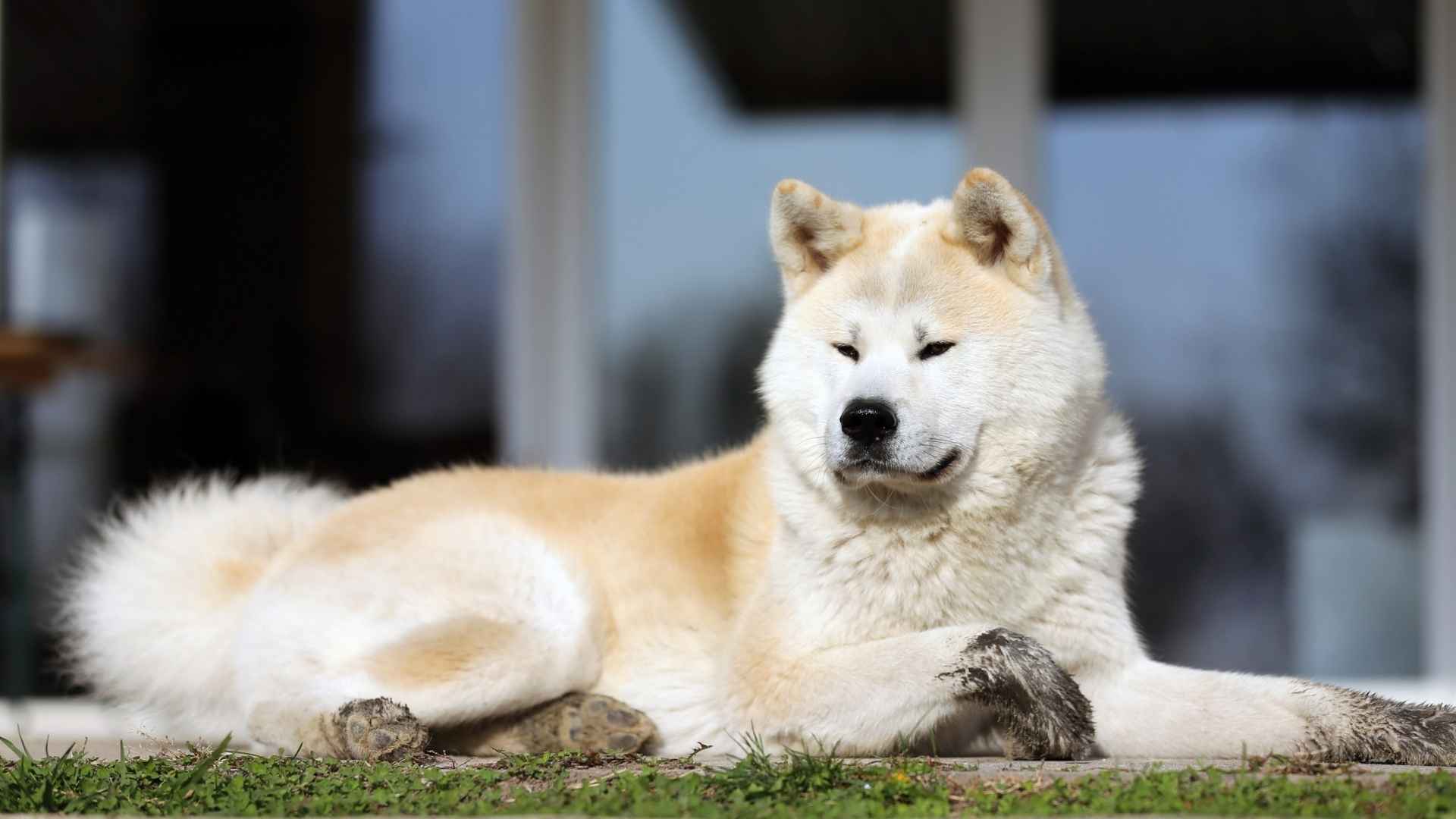If you’re drawn to dogs with presence—ones that are confident, loyal, and maybe just a little bit bossy—then assertive large breeds might be exactly what you’re looking for. These aren’t your typical lap dogs; they’re protectors, decision-makers, and deeply bonded companions who take their roles seriously. Whether bred for guarding, herding, or working alongside humans in tough conditions, these big dogs come with bold personalities and even bigger hearts.
But don’t let their size or strength intimidate you—many of these gentle giants are great with kids and can be amazing family pets with the right training. What they need isn’t a heavy hand, but a confident leader who understands early exposure, clear boundaries, and lots of love. In return, you’ll get a fiercely loyal best friend who’s always looking out for you.
Ready to meet the world’s most assertive, intelligent, and loyal companions? Let’s dive in.
Assertive Large Dog Breeds
1. Cane Corso
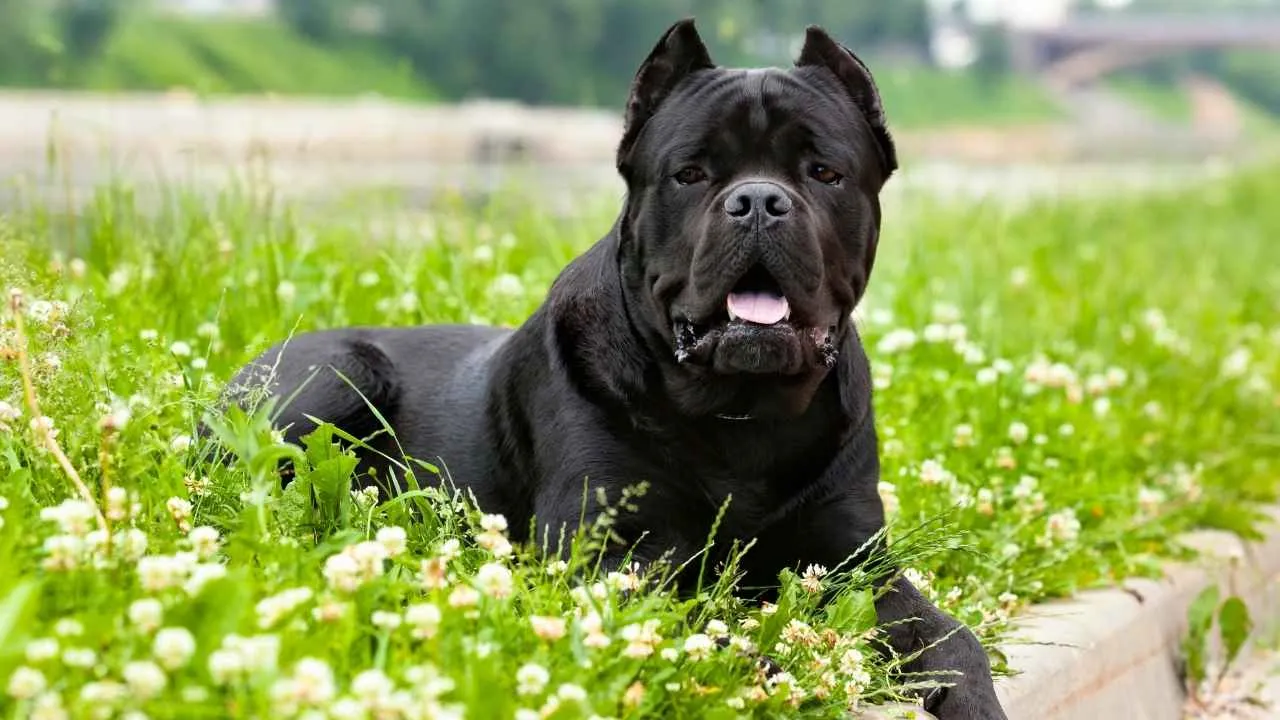
According to the AKC, the Cane Corso is a muscular, highly protective dog with Italian roots. Originally used to guard estates and hunt wild boar, this breed still takes its role as a protector seriously. It’s one of those dogs that seems to know what you’re thinking before you say it.
This breed is part of the Molosser family—like many giant breed dogs—and has a deep chest, strong jaw, and commanding presence. Despite this tough exterior, it’s gentle with family members and forms strong bonds with its people.
As with many guard dog types, early training is crucial. Without it, the Cane Corso can become too dominant or reactive, especially around strangers or other pets. They’re not aggressive by nature, but they need structure to stay balanced.
They’re often great with kids, especially when raised with them from a puppy stage. That said, playtime should always be supervised. Like many large-breed dogs, they can unintentionally knock over small children due to their size.
The Cane Corso excels in military work, protection training, and advanced obedience, making it ideal for experienced owners who want a loyal, trainable partner.
With proper leadership and love, the Cane Corso isn’t just an aggressive protector—it’s a deeply devoted, intelligent companion.
2. Komondor
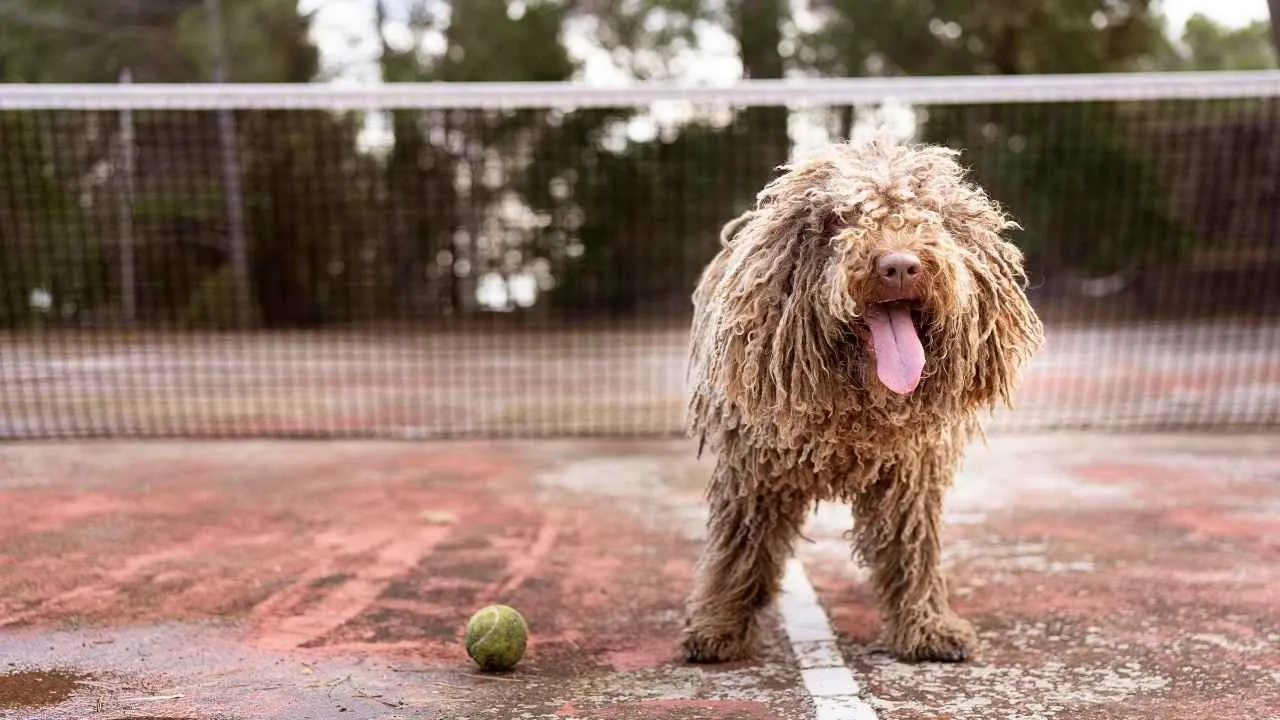
The Komondor isn’t your average guard dog—it’s a dreadlocked guardian that looks more like a mop than a working dog. Originally from Hungary, this breed was tasked with watching over livestock and outsmarting predators on its own.
Komondors are part of a fascinating group of herding and guardian breeds that rely heavily on instinct. They didn’t just bark at wolves—they stood their ground. This boldness remains part of their personality, even as pets today.
Don’t expect them to fawn over visitors like small dogs do. They’re reserved around strangers and extremely devoted to their families. Their protective nature makes them excellent for households looking for built-in home security.
That said, early socialization is a must. A Komondor that isn’t exposed to people, other pets, and new situations at a young age might develop anxiety or aggressive behaviors later on.
They’re surprisingly gentle giants with the people they love. They’re often calm around children and can coexist well with cats and other dogs if introduced early.
Grooming that corded coat is a commitment, but worth it for a dog that brings both personality and protection into your home.
3. Perro de Presa Canario
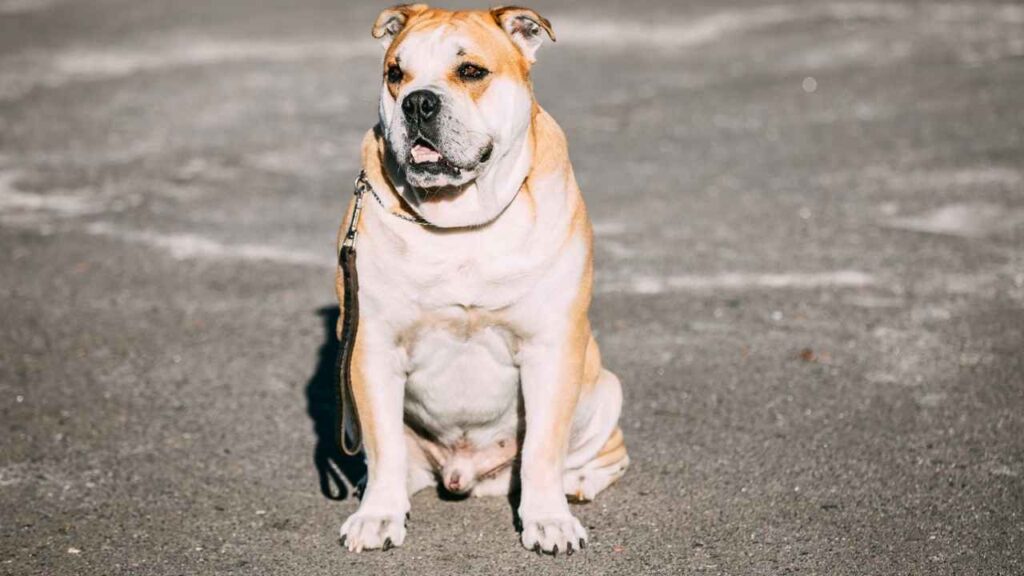
The Presa Canario—also known as the Canary Mastiff—isn’t just strong, it’s strategic. Originally bred in the Canary Islands for herding cattle and guarding farms, it’s one of those highly protective breeds that doesn’t miss a thing.
The Presa is all business. It’s confident, stoic, and always alert—an aggressive protector when it needs to be, and calm as a rock otherwise.
It gets along well with its people, especially when raised in the home from a young age. But with other dogs or cats, it can be hit or miss. Early training and careful introductions are key, especially if you’ve got other pets.
Because of their muscular build and dominant tendencies, Presas need consistent training and a confident owner. These aren’t dogs you can raise on autopilot.
Despite their serious demeanor, they’re often described as gentle and loyal with their human pack. They just have a strong sense of territory—and no patience for intruders.
If you want a working dog with presence and power, the Presa Canario checks every box. Just be sure you’re up for the responsibility.
4. Doberman Pinscher
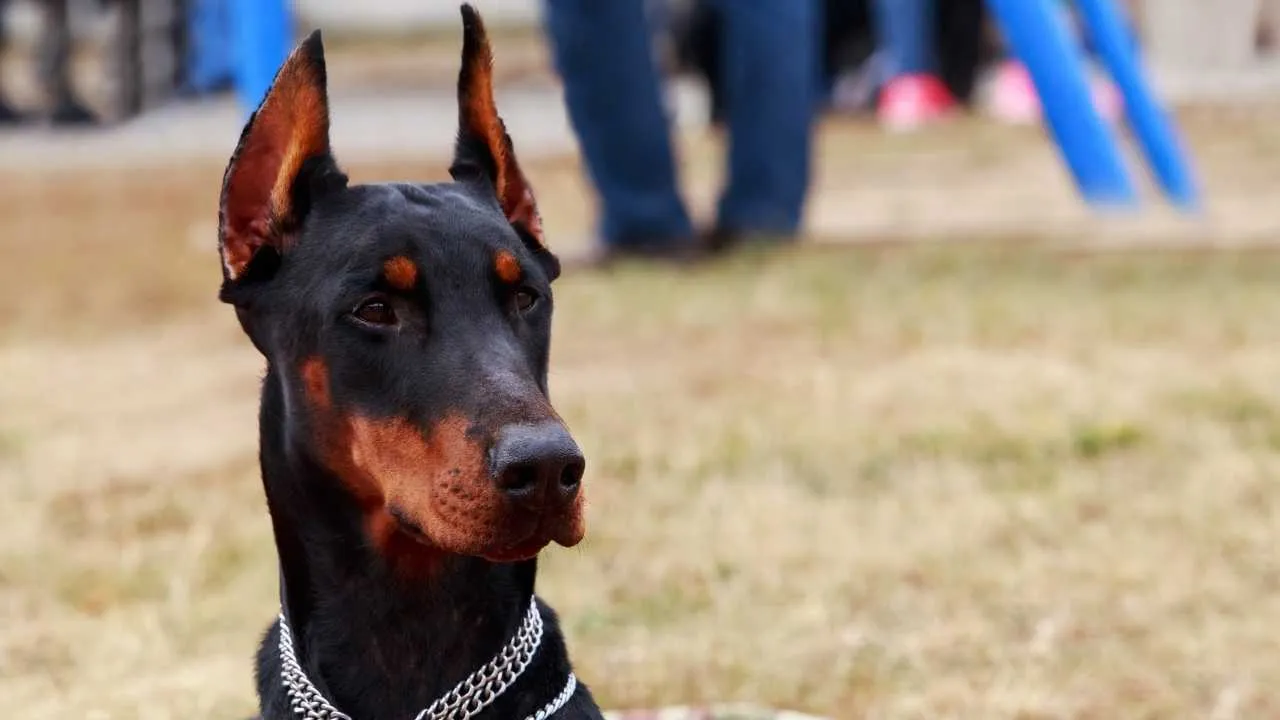
As per Britannica, the Doberman might be sleek and stylish, but don’t be fooled—it’s one of the most intelligent dog breeds on the planet. Designed in Germany for protection and military work, it’s got both brain and brawn.
Dobies love structure. They’re happiest when they know the rules and get to play by them. That’s why they do so well in competitive obedience, therapy work, and even search and rescue.
They bond fast and hard. If you want a dog that follows you from room to room and tries to read your emotions, this is your breed. They’re especially protective of children and other family members.
Because of their sharp minds, they need mental stimulation just as much as physical activity. Without it, they can become anxious or invent their own games involving your furniture.
Despite their rep as tough guys, Dobermans are often sweet with their humans. They’re also more tolerant of other dogs than some other assertive breeds, especially with good socialization.
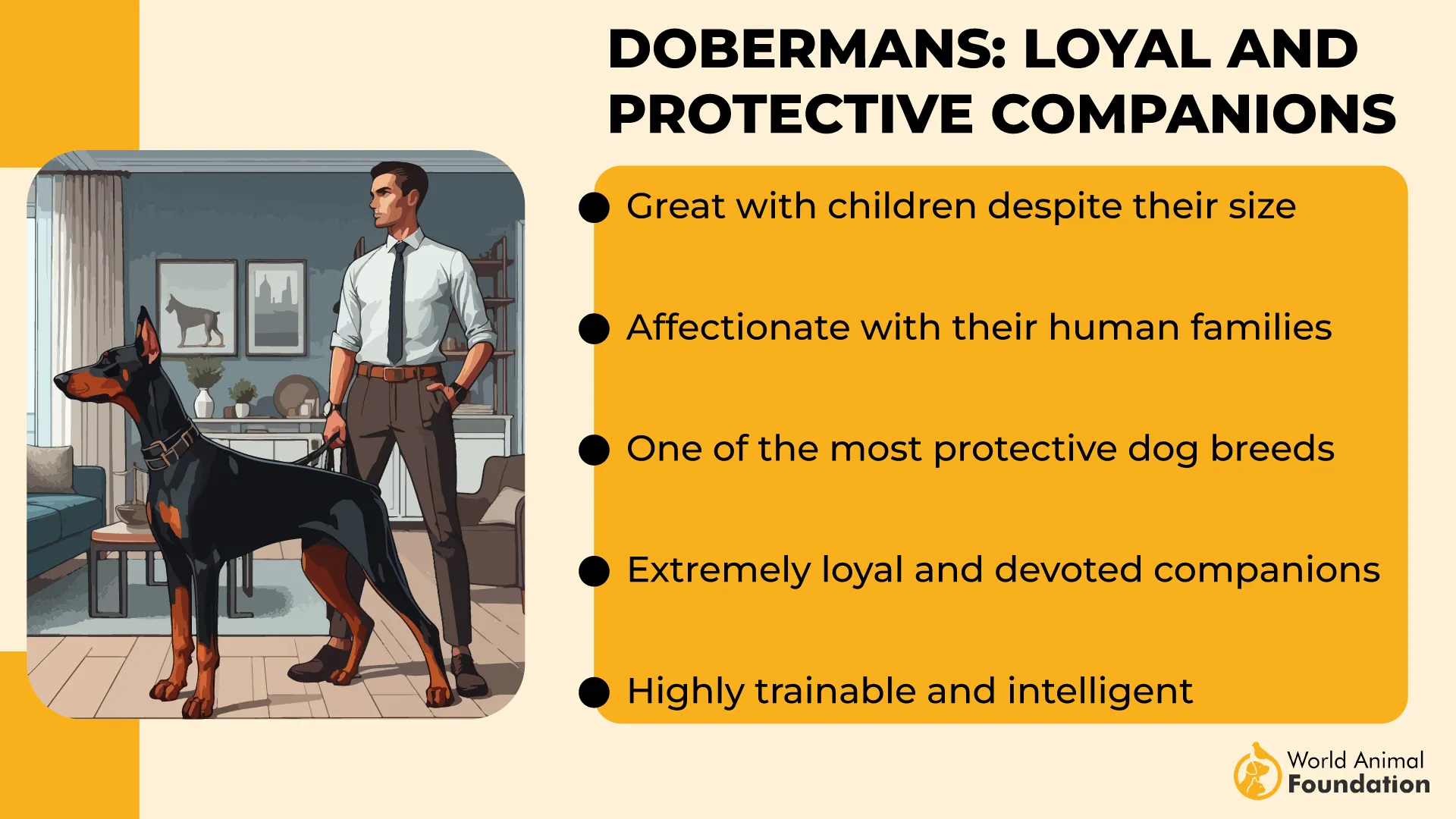
If you’re looking for a large breed dog that feels like a teammate more than a pet, the Doberman delivers on all fronts.
5. Rottweiler
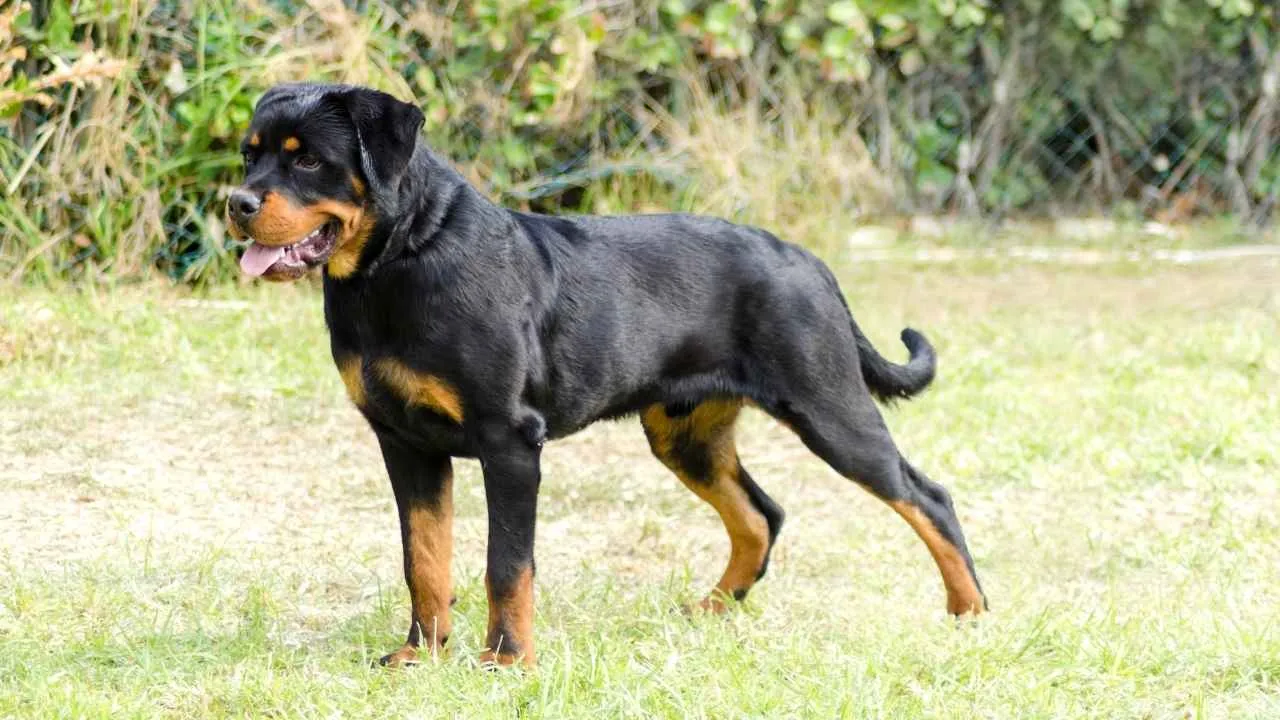
Strong, confident, and loyal to the core, the Rottweiler has a long history as a working dog. First used in Great Britain by the Romans to herd cattle, today’s Rotties are known for being both muscle machines and gentle family companions.
They’re great with kids when raised properly and are surprisingly patient around small children. Just don’t expect them to love every visitor—they tend to be cautious around strangers until they feel things out.
Training needs to start early and continue consistently. Without it, Rottweilers can become territorial or overly assertive. They’re not naturally aggressive, but their size and strength demand respectful handling.
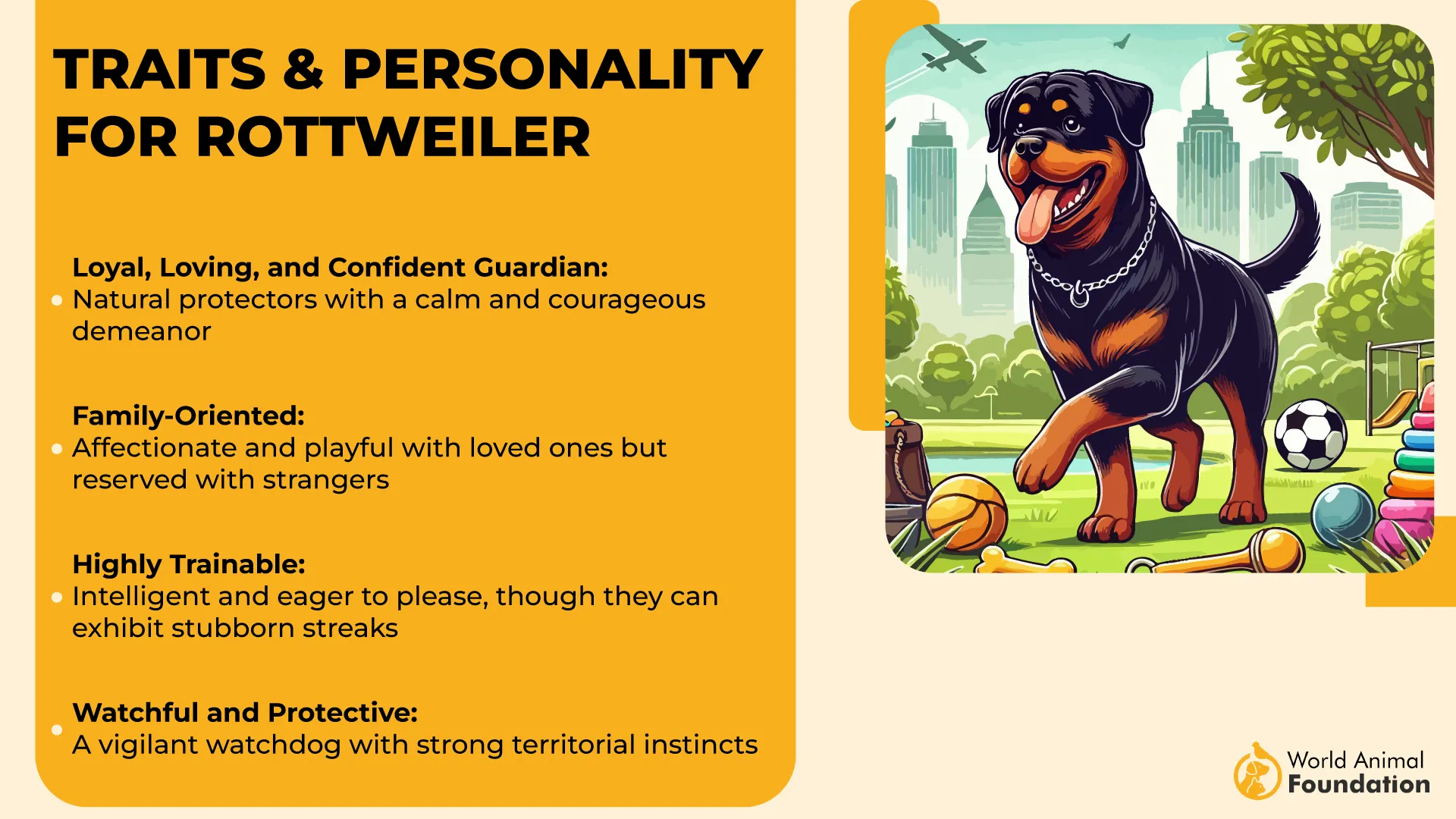
They’re also prone to hip dysplasia, like many giant breed dogs. Keeping their weight in check and providing low-impact exercise early on can help protect their joints.
This breed thrives with purpose—whether it’s guarding the home, joining in on therapy work, or simply fetching the mail. They love to work and shine when challenged.
Rottweilers are proof that tough doesn’t mean mean. With the right upbringing, they’re protective sweethearts through and through.
6. German Shepherd
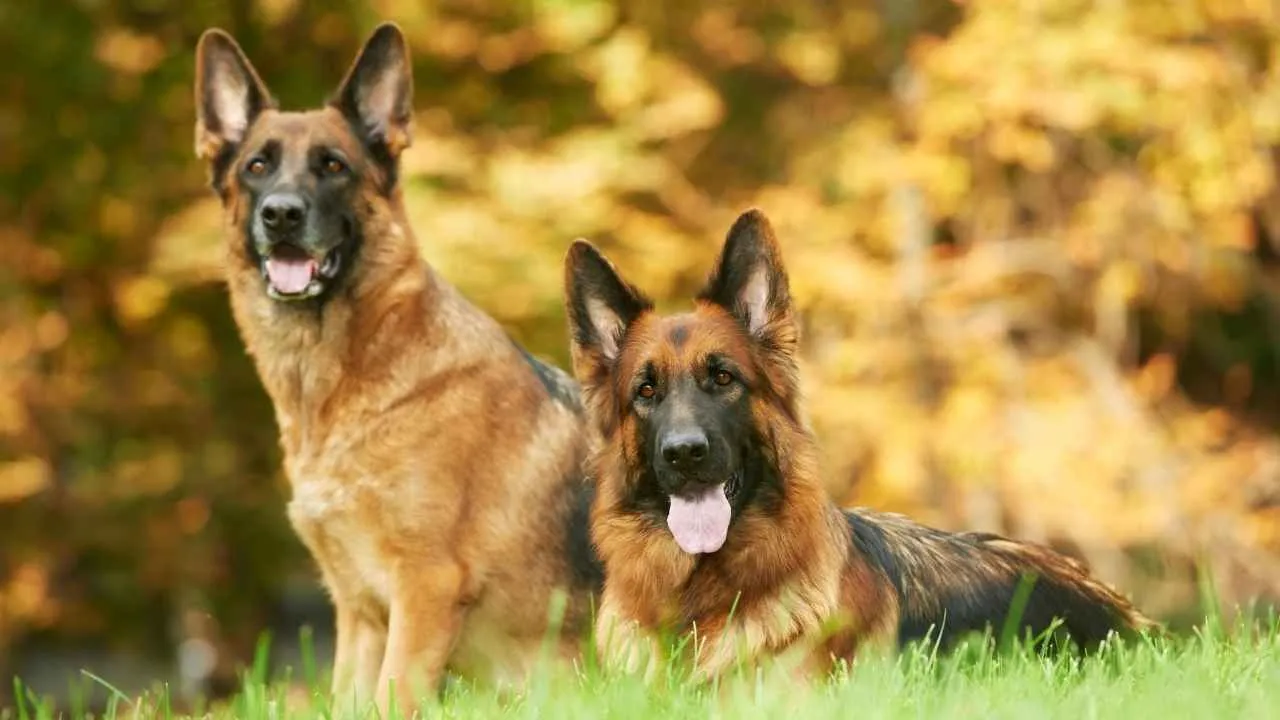
Ask most people to name the most intelligent dog breeds, and the German Shepherd will be near the top. These dogs are thinkers, doers, and fiercely loyal protectors. That’s why you see them in everything from police work to therapy roles.
German Shepherds were originally bred for herding sheep, but their versatility has made them one of the world’s favorite large breed dogs. They’re also fantastic with children, especially when raised with them from a young age.
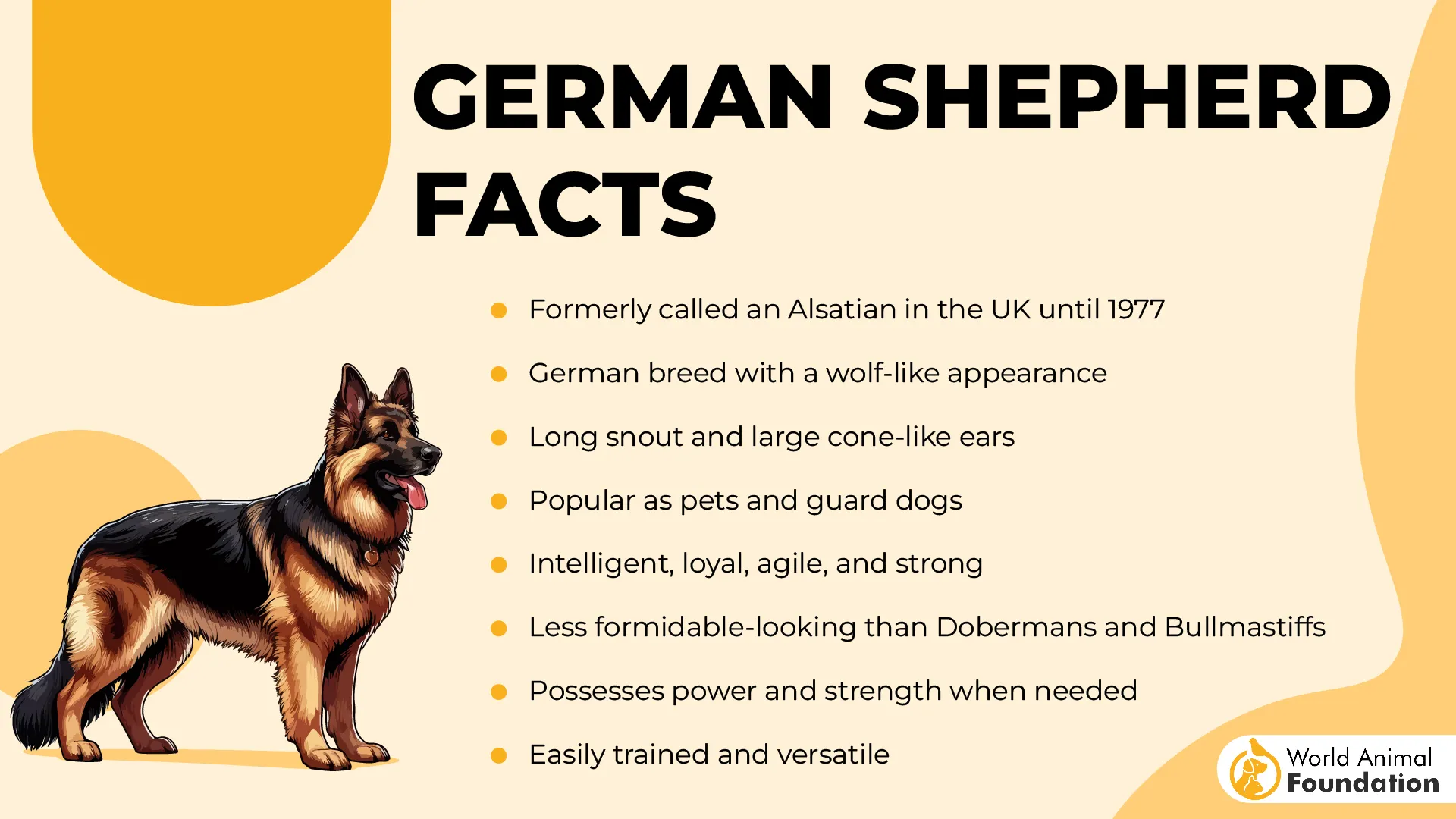
They need more than just exercise—they need jobs. Puzzle toys, scent games, and structured training sessions are all great ways to keep that brilliant brain busy.
Because they’re so people-focused, they don’t always love being left alone. If your lifestyle means lots of long hours away, this might not be your best fit.
PetMD states that they are naturally alert and make excellent guard dogs without being too reactive. With proper training, they’ll only raise the alarm when something’s truly off.
7. Akita
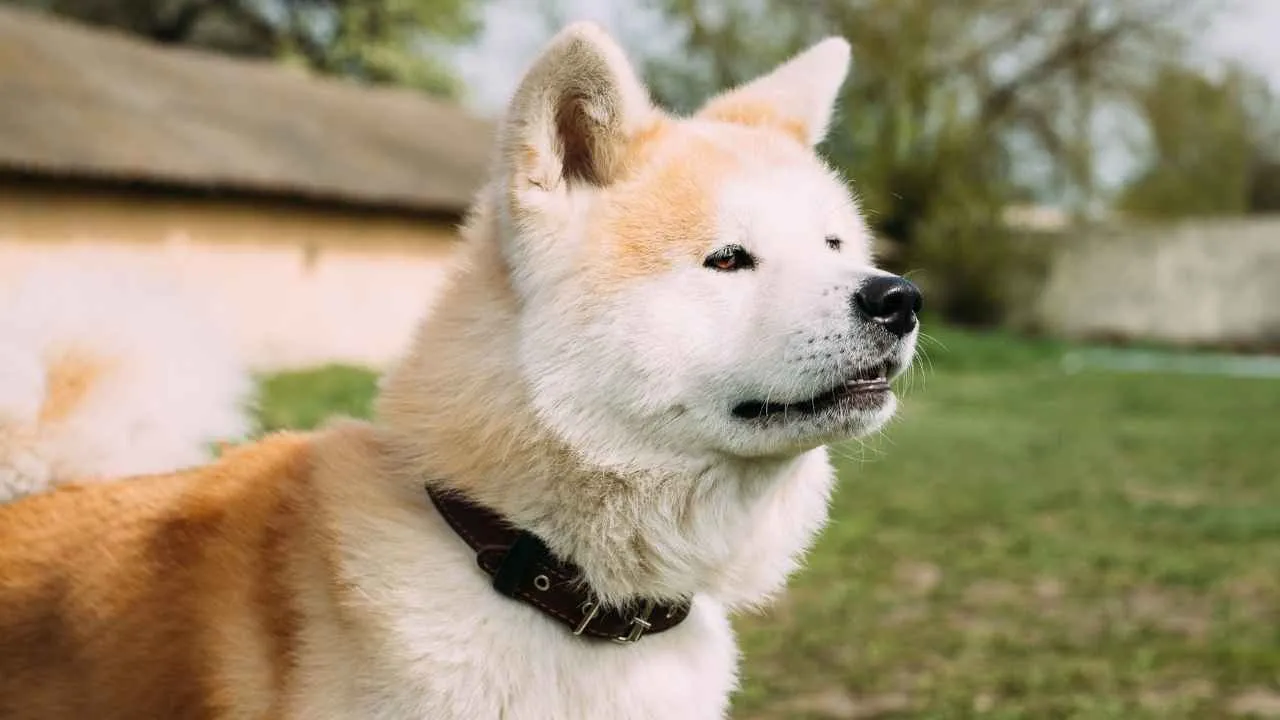
Akitas are the silent type. Originally from Japan, they were bred to guard nobility and hunt large animals like bears. That might sound intense, but around their people, they’re often total softies.
They don’t usually bark without reason, and they’re not huge fans of strangers. But with their chosen humans, they’re affectionate, loyal, and even playful—just in a quiet, dignified way.
Akitas are great with older kids but can be unpredictable around very small children and other pets, especially if they weren’t raised with them. Early training helps smooth those edges.
This isn’t a breed that wants constant cuddles. They’re happy doing their own thing but always watching from a distance. Think of them as introverts with a strong sense of duty.
They’re known for being clean and low-odor, which makes them easier to live with than many other giant breed dogs. Just make sure you give them plenty of space and calm routines.
If you love the idea of a dog that respects your space but will stand between you and the world if needed, the Akita brings quiet courage to the table.
Conclusion
Assertive big dogs like the Rottweiler, German Shepherd, Doberman, Akita, and others make incredibly loyal and highly intelligent companions. With the right owner, certain breeds thrive in homes that offer clear rules, early exposure, and consistent guidance. While they can be great family pets, especially with small children, they require firm leadership and thoughtful socialization.
Not all popular large breeds were included here. Breeds like the Bernese Mountain Dog, Saint Bernard, and Great Pyrenees are beloved gentle giants, but don’t typically show the same assertiveness as natural guard dogs. Similarly, Great Danes, Greyhounds, and chow chows have unique personalities but weren’t the focus of this guide.
Pit bulls are often misunderstood and can be affectionate pets, but their assertiveness tends to differ from the protective instincts discussed here. Hunting dogs also fall outside the scope, as their drive is geared more toward prey than guarding.
Choosing a dog means more than loving a look—it’s about matching temperament to lifestyle. Assertive breeds need proper care, boundaries, and even consideration around food, other pets, and daily routines. With the right approach, these dogs can be not just pets, but deeply bonded family members.


